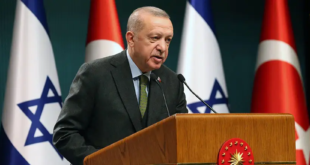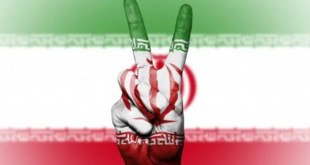BEIRUT — Fadia Ballout can no longer nurse her son as he screams with hunger.
Traumatised by her family’s escape from a southern Lebanese village close to Qana, where an Israeli air strike killed 60 people on Sunday, her breastmilk has stopped.
As 18-month-old Hussein latched onto his mother’s breast, he howled.
“Still no milk,” the 34-year-old mother said.
“I’ve had to give him formula, which he is not used to.” Fadia, her husband and their three children were forced to flee their village in the south, which has been pounded by Israel during its offensive.
Now the Shiite family lives in the Omar Faroug School in the Cola district of Beirut, with around 260 other displaced southerners.
Fadia hasn’t changed her brown dress since she arrived at the school on Monday, the children need new underwear and her husband, a driver in their    hometown, is slumping into depression.
Fadia’s small village of Rimadiye is close to Qana, close enough she says, that the house trembled with every air strike early on Sunday morning.
“The house would light up and shake,” she said. “The children were terrified.” But Fadia, who had lived through the 1982 Israeli invasion of Lebanon, and an Israeli attack on Qana in 1996, was not eager to leave her home.
She recounts one summer during the invasion, more than 20 years ago, when Israeli troops stormed her village and forced her and her parents out of their house. “They shouted at us to leave our houses and gather in the town square, under the sun,” she said.
“We’ve been hurt by the Israelis before. Everytime we forget, they remind us,” she despaired.
The Jewish state’s latest offensive came on July 12, after the Shiite group Hizbollah captured two Israeli soldiers on the border, sparking a devastating onslaught that has killed 835 people and destroyed roads, ports and bridges.
Qana was also the site of an Israeli bombing of a United Nations base on April 18, 1996 that killed 105 people who had taken refuge there during Israel’s “Grapes of Wrath” offensive — also aimed at wiping out Hizbollah.
The morning after the latest raid, Fadia’s neighbours called her and told her to leave her house immediately, that it was no longer safe to be anywhere in the south.
“We got the call at 9:30 in the morning. We grabbed everything we could and by 10 we were on the road,” she said.
“We picked up my sister and her six children too. I don’t know how we fit in the car but we had no choice,” she said. “We took back roads. We were scared.” The journey to Beirut, which usually takes three hours, this time took seven.
Once in the capital, the family got word that schools were turned into temporary shelters. They headed for the first one they found and were relieved to have a roof over their heads. But her sister’s children refused to stay at the school.
“They saw a bridge close to the school and got scared. They know that bridges are being bombed and wanted to go somewhere else,” she said, unsure where her sister ended up.
Fadia says her hope of going back to her village rests on Hizbollah and their leader Hassan Nasrallah, whose pictures hung next to children’s scribblings on the pastel walls of the classroom which has become home.
“God protect him,” she said, her timid voice turning into one of defiance. “He is the only one who can get us back home, by defending our land.” As she prepared tea over an electric stove, a delivery of children’s toys arrived.
“Everyone is good to us. They give us food, clothes and washing powder. But we just want to go home,” she said.
“I have no idea what my village looks like now. I don’t know which of my neighbours are still there. I don’t know what we will go back to,” she said.
“When we got in the car, we couldn’t look back.”
 Eurasia Press & News
Eurasia Press & News



